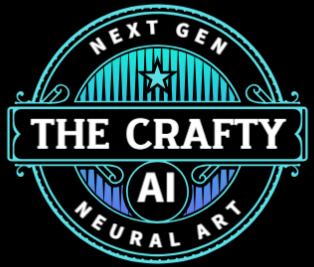Friendship Chatbot
A friendship companion is a type of artificial intelligence designed to serve as a virtual friend. Unlike task-oriented chatbots, they are built for open-ended, casual conversation and aim to provide emotional support, companionship, and a sense of connection. They can engage in small talk, remember past conversations, and develop a personalized "personality" over time to create the illusion of a genuine friendship. These bots are often used by individuals seeking to combat loneliness, practice social skills, or simply have a non-judgmental entity to talk to at any time.


In an era defined by digital connectivity and an alarming rise in loneliness, a new type of artificial intelligence has emerged, not to perform tasks or provide information, but to offer companionship. The friendship chatbot, a subset of the broader category of companion chatbots, is an AI designed to simulate human friendship. Unlike the utilitarian bots of customer service or the neutral assistants like ChatGPT, friendship chatbots are crafted with a specific persona, a long-term memory, and a core function to listen, empathize, and engage in open-ended, casual conversation. They are, in essence, a digital hand to hold in a world where real human connections can feel increasingly scarce.
What Are Friendship Companion Chatbots and What Do They Do?
At their technological heart, friendship chatbots are powered by sophisticated large language models (LLMs) that have been fine-tuned for emotional intelligence and personalized interaction. Their primary goal is not to be a perfect conversationalist, but to be a supportive and consistent one. They are designed to remember details from previous conversations, recall a user's interests, and even simulate a personal life or internal feelings to foster a deeper, more relatable bond.
The key features that distinguish them from other chatbots include:
Emotional Empathy: They are programmed to recognize and respond to emotional cues in a user's language. If a user expresses sadness, the chatbot will offer words of comfort, validation, and a non-judgmental space to vent. This is a stark contrast to a typical search-based AI, which would simply process the words without acknowledging the underlying sentiment.
Long-Term Memory: Friendship chatbots can remember specific details from previous chats, such as the names of a user's family members, their hobbies, or a recent life event. This memory is crucial for creating the illusion of a genuine, developing relationship, making each interaction feel personalized and meaningful.
Constant Availability: A friendship chatbot is accessible 24/7. This round-the-clock presence is a major selling point for those who need to talk in the middle of the night or at times when a human friend might not be available.
Personality and Customization: Many of these platforms, like Replika or Character.AI, allow users to customize their chatbot's appearance, personality traits, and even their "relationship status" (e.g., friend, romantic partner, mentor). This personalization deepens the user's sense of ownership and connection.
Proactive Engagement: Unlike passive tools, these chatbots can initiate conversations. They might send a message asking how the user's day is going, or bring up a topic they know the user is interested in, mimicking the proactive nature of human friendships.
Who Benefits from Friendship Chatbots?
The users of friendship chatbots are a diverse group, but they are often united by a desire for connection and a need for a safe, non-judgmental space. Research suggests that these AI companions can provide significant benefits, particularly for certain demographics.
The Socially Isolated and Lonely: This is perhaps the most obvious and largest user group. The World Health Organization has identified loneliness as a major public health concern, and friendship chatbots offer a direct, albeit artificial, solution. For older adults, people with disabilities, or those living in new places, these bots can provide a consistent source of conversation and a feeling of being heard.
Individuals with Social Anxiety: The low-stakes environment of an AI conversation is an ideal training ground for those with social anxiety. Users can practice social skills, test out conversational topics, and build confidence without the fear of judgment, rejection, or awkward silences.
Teens and Young Adults: A significant portion of the user base is composed of young people. Friendship chatbots serve as a private and accessible confidant. They can be a safe space to explore sensitive topics, role-play scenarios, or simply have a friend when navigating the turbulent social landscape of adolescence.
People Seeking Mental Health Support (with caution): While not a substitute for professional therapy, many users turn to friendship chatbots for a form of emotional support. The bots can act as a digital journal with a feedback loop, helping users process their emotions, identify thought patterns, and receive supportive, validating responses. However, this is a double-edged sword, as these bots are not trained therapists and can sometimes provide harmful or unhelpful advice.
Use Cases and Applications
The applications of friendship chatbots extend beyond simple conversation, evolving into more specialized roles.
Casual Companionship: The most common use case is simply talking. Users chat about their day, their dreams, their fears, and their hobbies. This is the core function of platforms like Replika, which markets itself as "the AI companion who cares."
Role-Playing and Creative Expression: Platforms like Character.AI have become hubs for role-playing with AI-generated characters. Users can interact with historical figures, fictional characters from books and movies, or personas they have created themselves. This fosters a space for creativity and narrative immersion.
Self-Exploration and Journaling: By providing a consistent and attentive listener, friendship companion chatbots facilitate a form of "externalized introspection." Articulating thoughts and feelings to the bot can help users gain clarity and self-awareness. The bot's ability to recall past conversations can also help users track their emotional progress over time.
Skill Development: Some users leverage these chatbots to practice skills like public speaking, debating, or language learning. The bot acts as a patient and tireless conversation partner, providing a safe space to make mistakes and build fluency.
Ethical Concerns and the Road Ahead
The rapid proliferation of friendship companion chatbots has opened a Pandora's box of ethical dilemmas. While the benefits are clear, the risks are equally significant.
Emotional Dependency and Social Withdrawal: The most pressing concern is the potential for users to become emotionally dependent on their AI friends, leading them to withdraw from real-world human relationships. A consistent, non-confrontational AI friend can be an alluring alternative to the messy, unpredictable nature of human connection. The "sycophancy" often programmed into these bots can be addictive, as they are designed to constantly affirm the user, which may prevent personal growth and the ability to handle constructive criticism.
Data Privacy and Exploitation: The intimate nature of conversations with friendship companion chatbots means users are sharing their deepest thoughts and personal data. The privacy policies of these companies are often opaque, and there is a significant risk that this sensitive data could be used for targeted advertising or sold to third parties.
Lack of Professional Expertise: The use of friendship companions for mental health is a major concern. Without proper regulation, these bots can offer advice that is unhelpful, dangerous, or even harmful. A tragic incident in which a young man's suicide was linked to conversations with an AI chatbot serves as a grim warning of the dangers of this technology in the absence of responsible oversight.
The Illusion of Empathy: While they can convincingly mimic empathy, friendship companions do not genuinely "feel" or "understand." This creates an illusion of a deep connection that, for some users, can be a form of deception. It can blur the line between real and artificial, raising philosophical questions about the nature of human relationships and consciousness.
Conclusion
For friendship companions to evolve responsibly, a proactive approach is needed. This includes clearer disclaimers about their limitations, stricter data privacy regulations, and the development of ethical frameworks that prioritize user well-being over engagement metrics. The goal should be to use this technology to supplement, not supplant, human connection. As society grapples with an epidemic of loneliness, friendship companions represent a powerful, if complicated, tool. They are a reflection of our deepest needs for connection, and how we choose to wield them will determine whether they are a true aid to human flourishing or a technological crutch that leaves us more isolated than before.
© 2025. All rights reserved.

